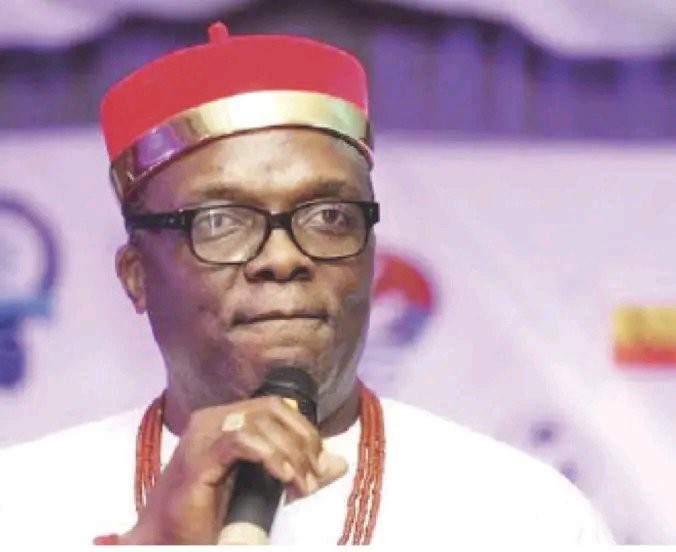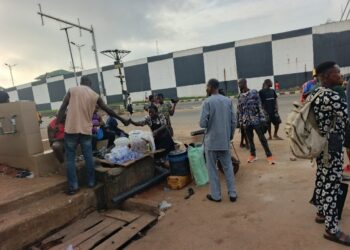In October last year, I wrote an opinion article published in some national dailies, titled, “LG polls: Will Soludo break the jinx in Anambra?” One year after, the jinx has not been broken. A fortnight ago, Edo State broke the jinx of prolonged non-conduct of local government elections, by holding polls for the election of chairmen and councilors for the 18 local government areas and 192 wards in the state.
The last local government election in Anambra State was held at the twilight of the administration of Peter Obi in 2014. Incidentally, that was the only council election held during the eight-year tenure of Obi as governor of Anambra State. Willie Obiano, Obi’s successor, did not hold any council election throughout his eight years in power as the governor of Anambra State.
When Prof Charles Soludo, an academic, took over the mantle of leadership in March last year, there was “renewed hope” for the conduct of council polls in Anambra, given his background and vast public service experience as former chief economic adviser to the President and one-time Governor of the Central Bank of Nigeria (CBN).
He also consulted for the World Bank and was the founder of Afriheritage, a think tank devoted to good governance and socio-economic policy researches. The organisation, which has Bishop Hassan Kuka, Dr Obiageli Ezekwesili, Donald Duke and other notable personalities as directors, also provides consultancy services to governments, local and international development organisations and the organised private sector.
Despite all the high ratings, 18 months after Soludo’s assumption of office, nothing has changed in the third tier of government in Anambra State. Rather, the hope of the conduct of local government election in Anambra State in the near future is dimming on a daily basis. The Anambra State Independent Electoral Commission (ANSIEC), the body saddled with the responsibility of conducting local government elections in the state is lying comatose, without a chairman and members.
Many people thought that the state will take advantage of the euphoria of this year’s general election to hold council polls. As of the time of writing this article, it appears it is a lost cause. There are fears that if council polls in the state do not come up as quickly as possible, the opportunity for it may be overtaken by the next Anambra governorship election. Going by the subsisting Electoral Act 2022, the Independent National Electoral Commission (INEC) will release the guidelines for the 2025 Anambra governorship election by the fourth quarter of next year (2024).
Recently, I watched Governor Soludo defending the recent controversial trip of Nigerian governors to Kigali, Rwanda for a retreat. He spoke in an interview with Channels Television. During the interview, one of the anchors, Nneota Egbe, asked him what he learnt in Rwanda and how he intended to use his experience from the retreat to better the lives of Anambra people. I was indeed surprised that he didn’t talk about the functional local government system in Rwanda, where government at the council level is administered by democratically elected representatives of the people.
Back home in Nigeria, Section 7 of the 1999 Constitution of Nigeria (as amended), guarantees the system of local government by democratic officials. The constitutional functions of the councils include collection of rates, building and management of markets, construction and maintenance of rural roads, naming of streets, numbering of houses, registration of births, deaths and marriages, and administration and funding of basic education and primary healthcare.
But in Anambra State under Soludo, handpicked state officials wearing the garb of “transition councils” are “illegally and illegitimately” running the affairs of the 21 local government areas. By conservative estimates, at least N50 billion has accrued to the 21 local government areas in Anambra State from the federation account under the Soludo administration. This is besides the billions of naira raked in as Internally Generated Revenue (IGR) from several markets scattered across the state. Yet, the 21 local governments in Anambra State have nothing to show for it. They lack security, infrastructure, quality schools, good health facilities and potable water.
In some parts of Anambra State, especially in Anambra South senatorial district, where my humble self and Soludo hail from, violent non-state actors have filled the vacuum created by the absence of functional local government system in the state. People now pay levies to these hoodlums to get permission to bury their loved ones. This would not have happened if there is a functional local government system in the state. A few days ago, the Commissioner of Police in Anambra State, Aderemi Adeoye warned that his command may resort to airstrikes to flush out gunmen terrorising residents of the state, especially in the North and South senatorial districts.
Rwanda is safe enough to host Nigerian governors on retreat because of the functionality of the local governments in that country. The district government in Rwanda is the equivalent of the local government in Nigeria. At the district level in Rwanda, they have the mayor, just like we have chairman in Nigeria. In Rwanda, the first response to crime comes from the district level through the Community Policing Committees (CPC). This is one of the things I thought Soludo should have brought back from Rwanda.
I am surprised that a person of his background has dilly dallied with the conduct of local government election for so long. In its true meaning, democracy is synonymous with grassroots democracy. The local government is the tier of government closest to the people. Let me once more remind Soludo that the local government in Nigeria is the tier of government closest to the people. The majority of the people in Anambra State, especially those at the grassroots level may not have the opportunity to see him throughout his eight-year tenure. On the other hand, they could easily see their chairmen and councilors, and even hold them accountable.
In conclusion, I expect Soludo to obey the constitution of Nigeria which he swore on his inauguration day to uphold. The constitution says that the local government should be governed by elected officials. The importance of the local government system cannot be over-emphasized. Besides bringing government and development closer to the people, especially rural dwellers, it promotes democracy and popular participation in politics. The local government also serves as a training ground for future leaders at the state and national levels. Additionally, it contributes to economic growth through the provision of secure and stable environment for businesses to thrive.






